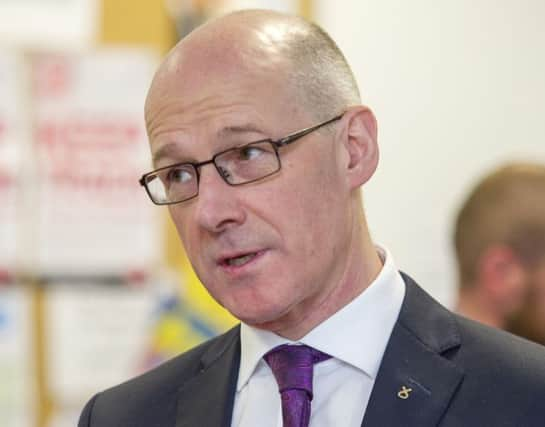John Swinney makes changes to named person scheme


The Scottish Government has been forced into a climb down after its intention to allow information sharing about children amongst agencies without parental permission was ruled unlawful by the Supreme Court.
The scheme to appoint a named person – usually a head teacher or health visitor – to every Scottish child has been one of the most controversial Scottish Government policies.
Advertisement
Hide AdAdvertisement
Hide AdCritics believe it is intrusive and undermines the rights of parents. Originally, ministers wanted the new law to enable information about children to be shared across agencies without the knowledge of parents. Last year, however, the Supreme Court ruled that part of the Children and Young People (Scotland) Act was not within Holyrood’s competency and warned it would breach rights to privacy and family life under the European Convention on Human Rights.
Mr Swinney has now published the Children and Young People (Information Sharing) (Scotland) Bill, which is designed to ensure sharing is compatible with current law. Public bodies and other organisations will have a duty to consider if the sharing of information will “promote, support or safeguard” the well-being of a child.
The new law will also introduce a new code of practice for information sharing.
Shadow education secretary Liz Smith of the Conservatives said: “The named person policy was a huge mistake from beginning to end which is why the Scottish Government has been forced into a major u-turn. “The announcement today effectively means that no parent will now be forced to accept the advice from his or her child’s named person and that refusal to accept advice will no longer be treated with suspicion by the authorities. “The Supreme Court ruling made clear that the data-sharing aspects of the Act were unlawful on account of the fact that they had the potential to contravene other legislation and to allow state intrusion into family life. “Quite rightly, the vast majority of parents found that unacceptable. “The Scottish Conservatives believe that the revised bill still raises many questions and it also lays bare the extent of the expense to the taxpayer of this ill-conceived policy.”
Simon Calvert of No To Named Persons (NO2NP), which brought the legal action against the Scottish Government said: “The new proposals confirm one of the most remarkable, ignominious and expensive U-turns in the history of the Scottish Government and a huge victory for mums, dads and children across the country and the 35,000-plus NO2NP supporters.
“They have now been forced to accept that their original draconian Big Brother proposals were an utter shambles from the start, representing an interference in family life and a fundamental breach of European human rights laws on privacy and information sharing.
“In effect they say the duty of a named person will be to consider whether sharing information is likely to promote, support or safeguard the wellbeing of the child or young person. They must also then consider whether sharing that information would be compatible with data protection law, human rights law and the law of confidentiality.
“That’s a 100 per cent climbdown on their original plan of a statutory duty to share information about people’s private lives almost without restriction.”